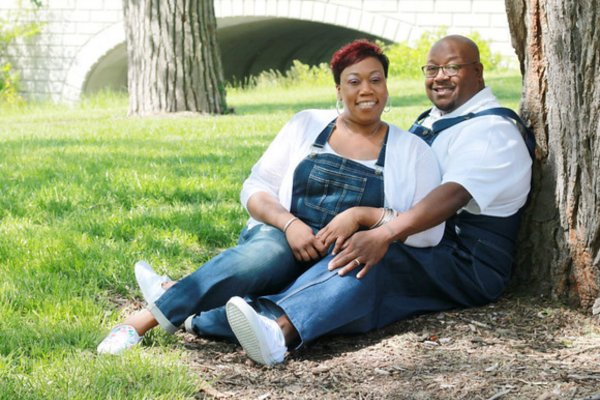July 11, 2023
From a sudden collapse and strokes to dialysis treatments and failed transplants, Nathan and Candria's kidney disease journeys have been marked with many setbacks. Despite these challenges, they’ve never stopped embracing life’s beautiful moments and cherishing their family. This is how they found the strength to live life to the fullest without letting their illnesses define them.
Getting diagnosed with kidney disease
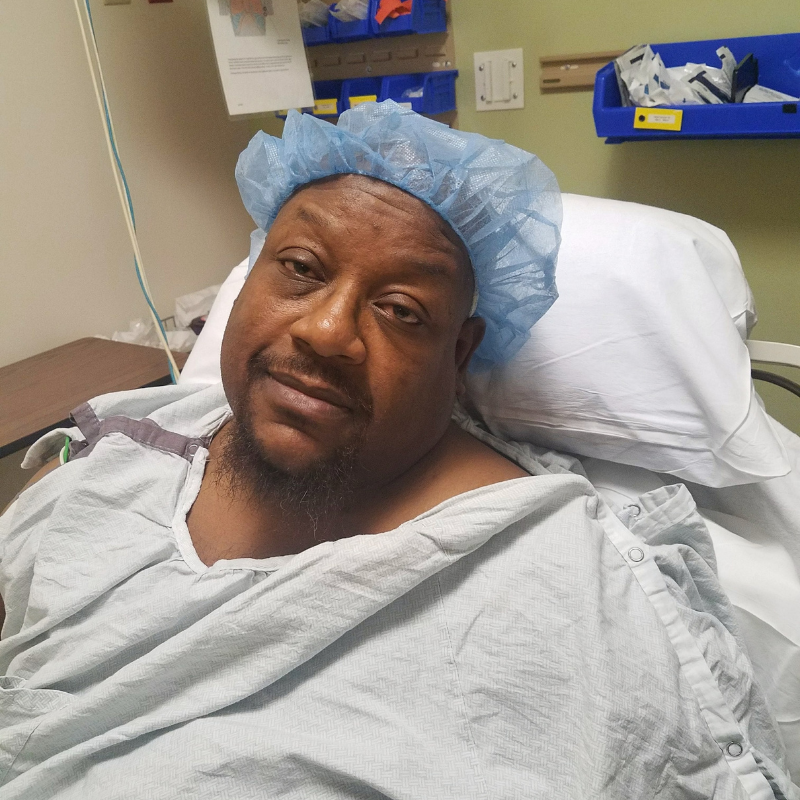
In 2000, Nathan was cleaning out his truck when he suddenly passed out.
"I went to the hospital and my blood pressure was really high. They did a few tests and found out I was losing protein through my urine and was in stage 2 kidney disease," said Nathan. "I was diagnosed with Nephrotic Syndrome and glomerulonephritis. I did steroid treatments for two years until I lost my job and my insurance."
Learn more about high blood pressure and kidney disease.
Soon after losing his job, Nathan and Candria got married. With Candria's insurance, Nathan was able to resume medical treatment and remained stable until March 2008 when he got the call that he needed to start hemodialysis.
Two months later Nathan switched to peritoneal dialysis (PD). On the same day as Nathan’s PD access surgery, Candria went to the emergency room because she didn’t feel well and was struggling to breathe. At first, doctors weren't sure if anything was physically wrong with her until they checked her kidneys.
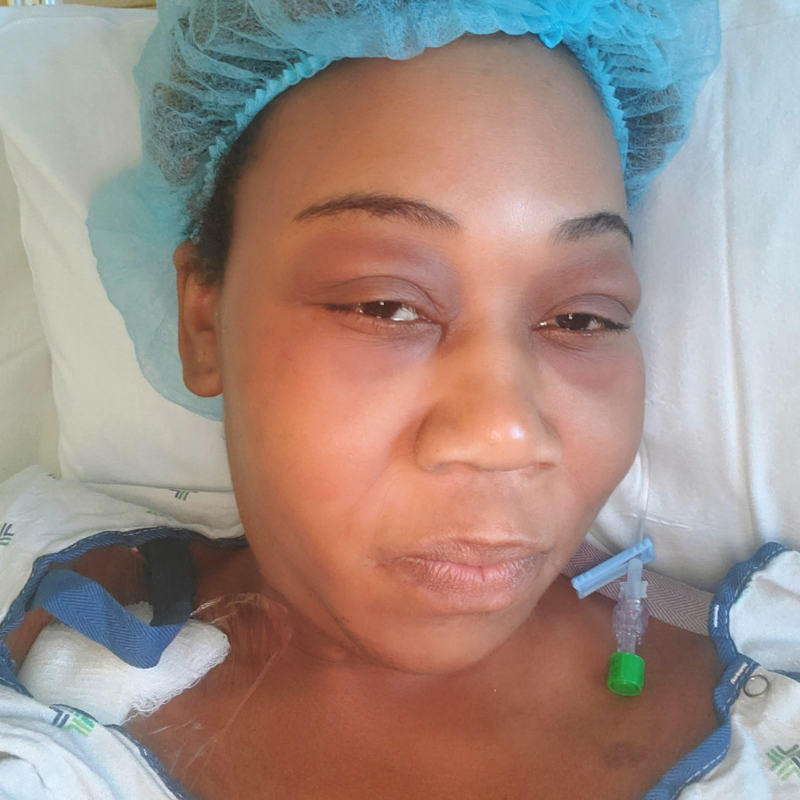
"My doctor explained that I had lost almost all kidney function but she wasn't sure how. I had a checkup a year prior with no sign of kidney disease. She thought it could have been due to some medicine I took for a rash or preeclampsia (high blood pressure) during my three pregnancies," Candria said. "I stayed in the hospital for a couple of weeks with the hopes that my kidney function would return but that wasn't the case. They did a biopsy but couldn't get a good sample so we never found out why this happened. I started hemodialysis but quickly also switched to PD."
Nathan and Candria’s lives had completely changed over the course of just two months and things weren’t about to get better.
Kidney failure can be scary. Contact NKF Cares at 855.NKF.CARES (855.653.2273) or nkfcares@kidney.org to speak with a trained specialist who will answer your questions and listen to your concerns.
Working through setbacks
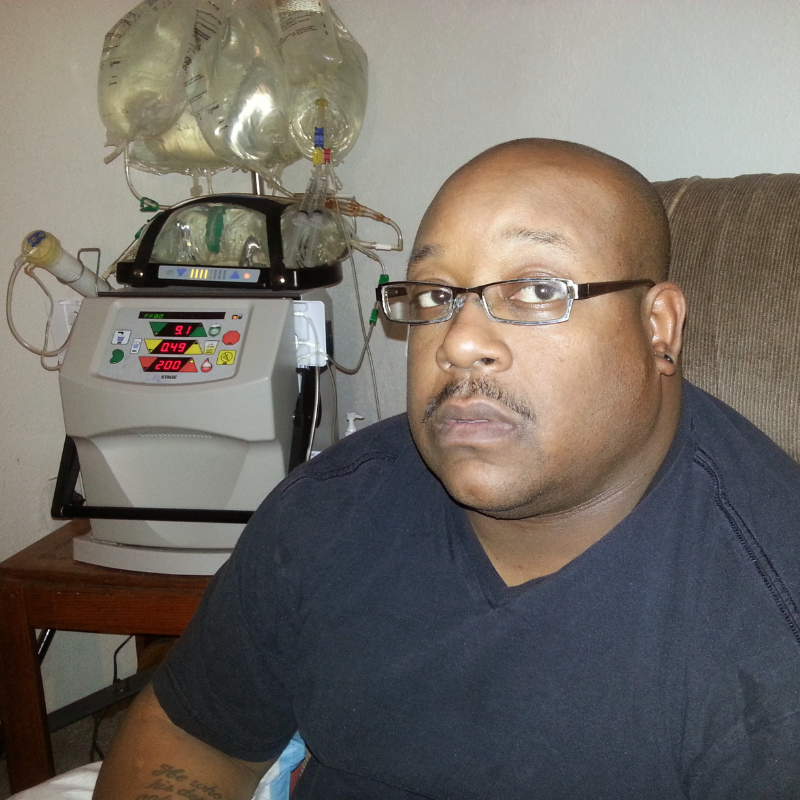
Life continued to take a turn over the next year. Candria struggled with kidney failure, often feeling sick and tired. Nathan was doing very well until he developed diabetes from the PD sugar solution and was hospitalized after becoming seriously ill.
"Both of us were sick but Nathan's treatments and medicine regime were different from mine. He didn't look or act like he was sick to the point of needing dialysis," Candria said. "My kidneys were completely gone but his were still functioning. I called our nurse and asked if he really needed to be on dialysis and she implied that he did not.”
With that, Candria demanded a new nephrologist and asked the hospital staff to stop giving him peritoneal dialysis since the sugar solution was contributing to the incredibly high levels of glucose (sugar) in his blood. At first, the hospital staff thought Candria was trying to facilitate Nathan’s death but after reviewing his lab results, they determined he was at stage four kidney disease, not kidney failure. They agreed to stop PD, even if only long enough to prepare Nathan for hemodialysis.
“They took Nathan off dialysis. With proper diet and treatment, he didn't have to go back on for another four years," said Candria. “We learned his doctor had been prematurely putting people on dialysis and lost her medical license in our state.”
"She never listened to us, was rude, and talked over us," Nathan said. "She took away years of my life. I'd just graduated from culinary school but was too sick to work now. I stayed off dialysis until 2013–four years after I was originally put on it. This time my new nephrologist recommended I do home hemodialysis to avoid the PD sugar solution.”
After this, life continued with some normalcy. Candria got a lap band in 2011 to help her lose weight so she could get on the transplant waitlist. Due to complications, the band had to be removed, but she tried again with a gastric bypass in 2014.
"I waited until I was under my goal weight to contact the transplant center because I didn't want to hear about any more setbacks. They said I had an oxalate issue and would need to go off PD and onto hemodialysis if I wanted a transplant," Candria said. "They said if I stayed on PD the oxalate would destroy my heart and I'd die. I was going into surgery for my hemodialysis access when my nephrologist called and canceled it. She wanted to do more research and have me retested. It turns out, they did the test wrong–I did not have an issue with oxalate."
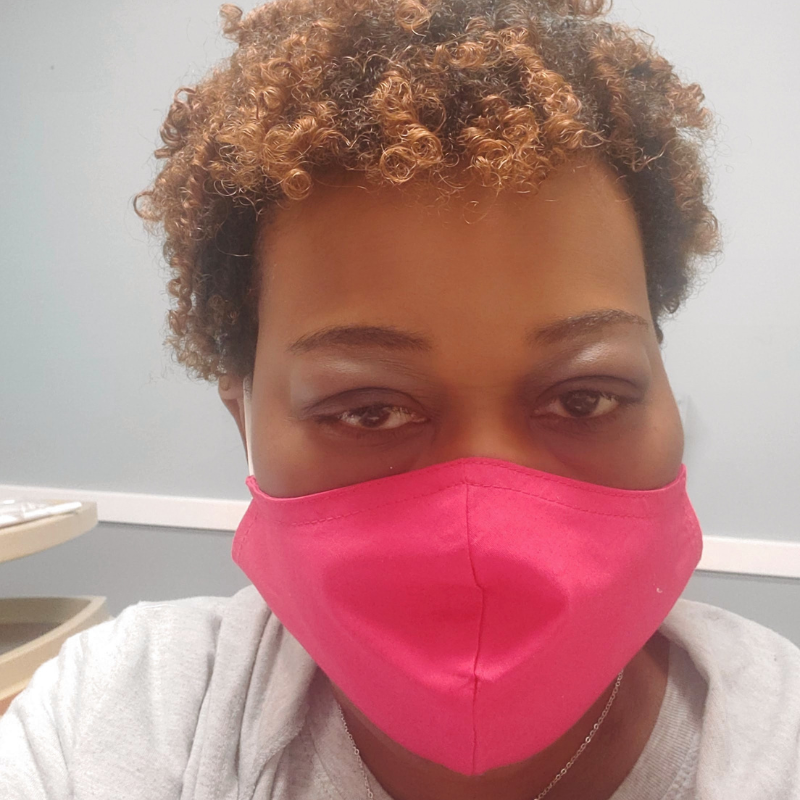
With that, Candria was finally added to the transplant waitlist, where she remained for five years. During this time, Nathan had four strokes that affected his speech, legs, and left arm. He was also removed from the transplant wait list due to failed stress tests and problems with his heart. Learn more about the kidney-heart connection.
"I began having issues with my home hemodialysis nurse. I was a bigger Black man with a deep voice. She was an older white woman who said I was intimidating even though I was just talking to her," Nathan said. "She made a lot of mistakes but anytime I questioned them she said I was mean. The situation became so horrible I moved to a different dialysis clinic. That clinic closed though, and I'm back at the original one. I did get a different nurse."
Your dialysis center and healthcare team are responsible for providing you with the best treatment possible. If they are not providing quality treatment or your concerns aren’t properly dealt with, help is available. Learn about dialysis facility complaints and your rights.
As Nathan continued with home hemodialysis, Candria finally received a kidney transplant in 2021.
"The center called about a potential kidney. We drove four hours to get there only to find out it wasn't a match. Apparently, they didn't have a good blood sample from me," Candria said. "I got home and they called back with a different kidney. This time they had my blood and could confirm it was a match. The surgery was a success."
At NKF, we believe that everyone who needs a kidney should have one. Learn about kidney transplantation and living donation.
Never giving up
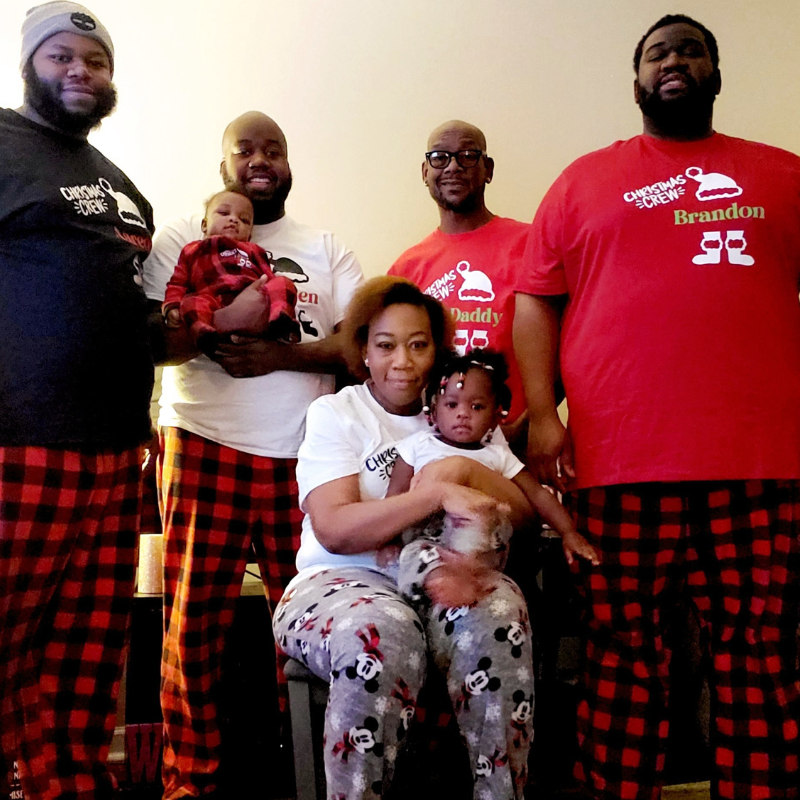
How do Nathan and Candria hold on to hope with so many setbacks?
"We control the illness, it doesn't control us," said Candria. "My goal is to continue living while I'm here. I tell people to try living as much as possible and do the best to enjoy the life you have."
"You find someone that you can trust, and has your best interests at heart–someone who will be honest with you. Candria's always been honest with me," said Nathan. "You also need to find personal reasons to survive and live. You can't be a support to anyone else if you can't do that for yourself."
Their strength also stems from their determination to give their three children, who were all quite young when Candria was first diagnosed, the best childhood possible and set them up to be successful, resilient adults.
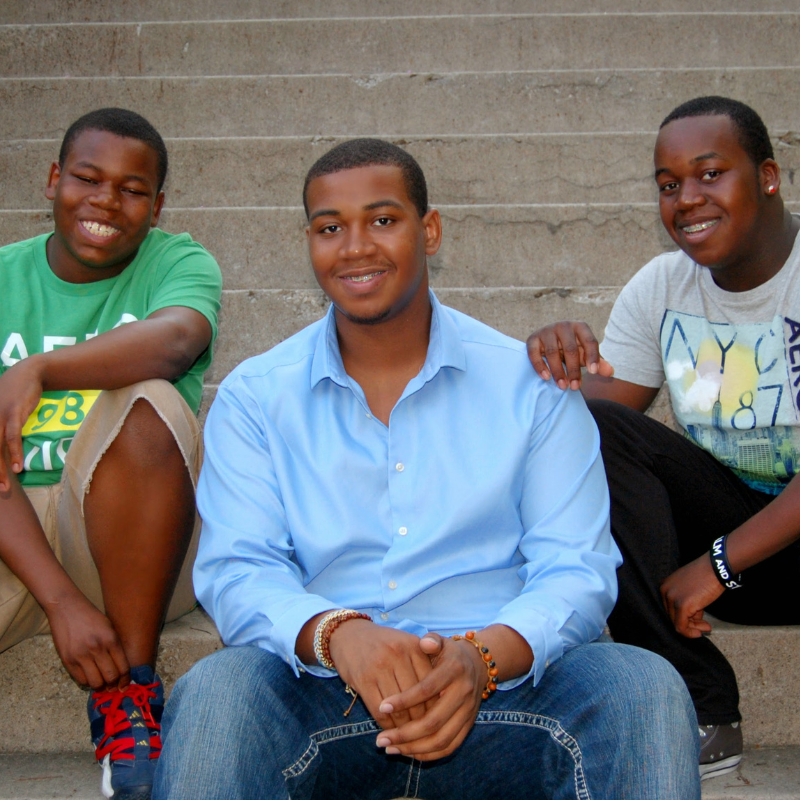
"We explained what was happening and they picked up on it quickly because they are very bright. We had conversations with them and even took them to the dialysis center to speak with the social worker," said Candria. "We do our best to keep their lives as normal as possible. We do a lot of traveling and always have a yearly vacation. We never gave up on our lives or our kids but did teach them to take care of each other when we aren't here anymore."
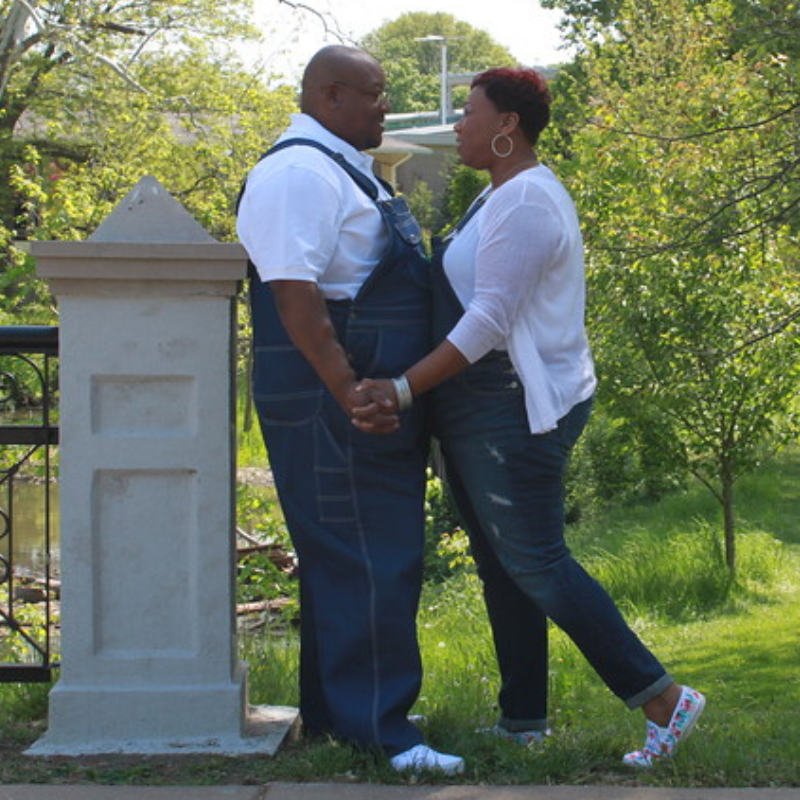
Together, there is nothing Candria and Nathan can’t overcome.
At NKF, we are committed to KIDNEY EQUITY FOR ALL™. That's why we believe the inclusion of race on the Kidney Donor Risk Index (KDRI), the formula that "scores" donated kidneys, is unacceptable. Using race and ethnicity in clinical calculations harms patients and perpetuates racism in kidney care. Join us in telling the Organ Procurement and Transplantation Network (OPTN) to remove race from the KDRI.
